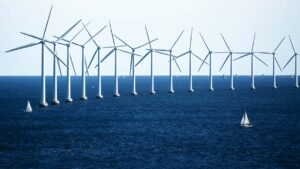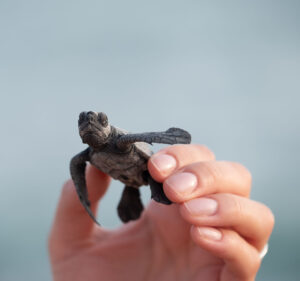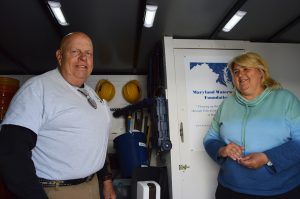This year seems to have heightened our use of technology. Remote education and work, online shopping, curbside pick-up and virtual experiences for everything from museums to medical appointments feel oddly normal these days.
Technology can also help us find new ways to be advocates for the environment as we enjoy the summer boating season. If you are interested in waterway cleanup, wildlife conservation or becoming a “citizen scientist,” there’s an app for that. The following apps are useful for eco-friendly boaters.
Crowd-Sourced Cleanups Make an Impact
Beaches marred by washed up debris, discarded containers sloshing against bulkheads at marinas and random flotillas of trash passing our boats are vivid images of the impact of litter. Sometimes it seems overwhelming. If you have stopped to scoop a floating Mylar balloon from the water, you may think your action is too small to be effective. There is value in feeling like what we do matters.
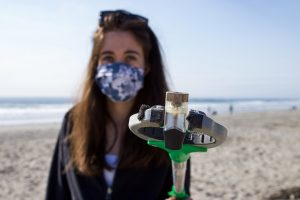
In the past, coastal cleanup projects and events sponsored by organizations enabled participants to experience being a part of a larger impact. While the pandemic may have caused limitations to such gatherings, it has helped many people discover new ways to crowd-source cleanup efforts using apps.
Clean Swell is offered by the Ocean Conservancy, a global environmental group. The app is an extension of its worldwide coastal cleanup challenge. Users can log their personal cleanup activity or report results of small group collections. The app makes it easy to note date, time and location for each cleanup. Once you have logged on, a screen with icons representing common trash items makes reporting as simple as “pick it and click it.” The Ocean Conservancy uses the data to help research solutions to the global ocean plastics crisis.
Litterati uses your phone’s camera, geo-tagging and a unique LitterAI ability to make picking up litter fun and impactful. Individuals, friends, schools, boat clubs or organizations can track their combined influence on the app. Litterati’s creator, Jeff Kirschner’s belief that “Individually you can make a difference, together we can make an impact” is perhaps best supported by one of its many success stories.
A group of 5th graders used Litterati to tag and map more than 1,200 pieces of litter on their campus. They learned much of the litter was straw paper wrappers from their cafeteria. Using that data, the students petitioned their school for change. Their cafeteria is now straw-free. Used by boaters, Litterati can help further establish data to support waste management initiatives near our shores.
Litter CleanUp is a unique reward- based app supported by the Clean Planet Project. Users photo document their litter removal to earn points. Accumulated points can be redeemed for discounts from partners such as Wilderness Coffee, Happy Earth Apparel, and Urban Leaf. Litter CleanUp is a new app, but its combination of fun and profitable litter collection is helping encourage individual clean ups.
Watching Wildlife
If you enjoy dolphins at your bow, are awestruck by whales and are amazed at the diversity of marine life below your boat, you will find plenty of ways to be an advocate for marine life on your phone.
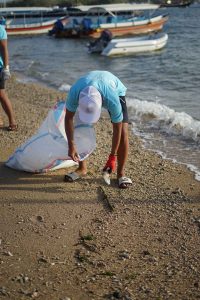
Dolphin & Whale 911 is provided by National Oceanic and Atmospheric Administration (NOAA). Currently covering the Southeastern United States, with plans to expand, the app allows users to report dead, injured or entangled mammals to the nearest response center. Users have access to a wealth of information helpful to boaters who encounter marine mammals. This app equips users with identification, behavior, geography and conservation information, as well as guidelines for encounters.
Report Florida Lionfish was developed by the Florida Fish and Wildlife Conservation Commission. Lionfish are an invasive species threatening Florida’s coral reef fish population, so harvesting lionfish is greatly encouraged. This app provides information to help identify, catch, report and even how to prepare them for dinner.
Whale Alert is a NOAA app that provides boaters with a user-friendly way of reporting whale sightings. These reports are useful to help larger ships avoid whale strikes. Users can view management areas for the endangered North Atlantic right whale on the East Coast and explore sightings on the West Coast.
Citizen Science
Citizen science apps help researchers expand their data collection. When users participate in crowd-sourced data collection, they promote understanding of our earth and can shape environmental prevention and protection measures.
Marine Debris Tracker is part of the NOAA marine debris program. Taking time to notate discarded items along our waterways creates a bigger picture of our marine pollution crisis. Your reports contribute to research and help generate solutions for marine pollution.
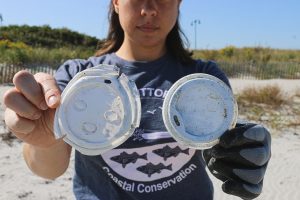
GLOBE Observer enables users to contribute observational data to NASA and the scientific community. An example of data collection is the app’s cloud observation tool, which provides prompts for lining up your phone with the sky to capture cloud images and records time, location and your personal observations. You can send this report to NASA and add to its databank for research and satellite comparisons.
On your next day on the water, anchored in a breeze, exploring a new river, crossing a bay or running offshore, remember you have the technology to be a positive impact on your environment.
“One person can make a difference, and everyone should try.” — John F. Kennedy
Marinalife Mobile App has partnered with the International Fund for Animal Welfare and NOAA’s National Marine Sanctuaries. Use your Cruising Club member discounts, search local marinas, fuel prices and report whale sightings!
Editor’s Note: Most of the apps mentioned in this article are available at the Apple App Store and the Google Play Store.


